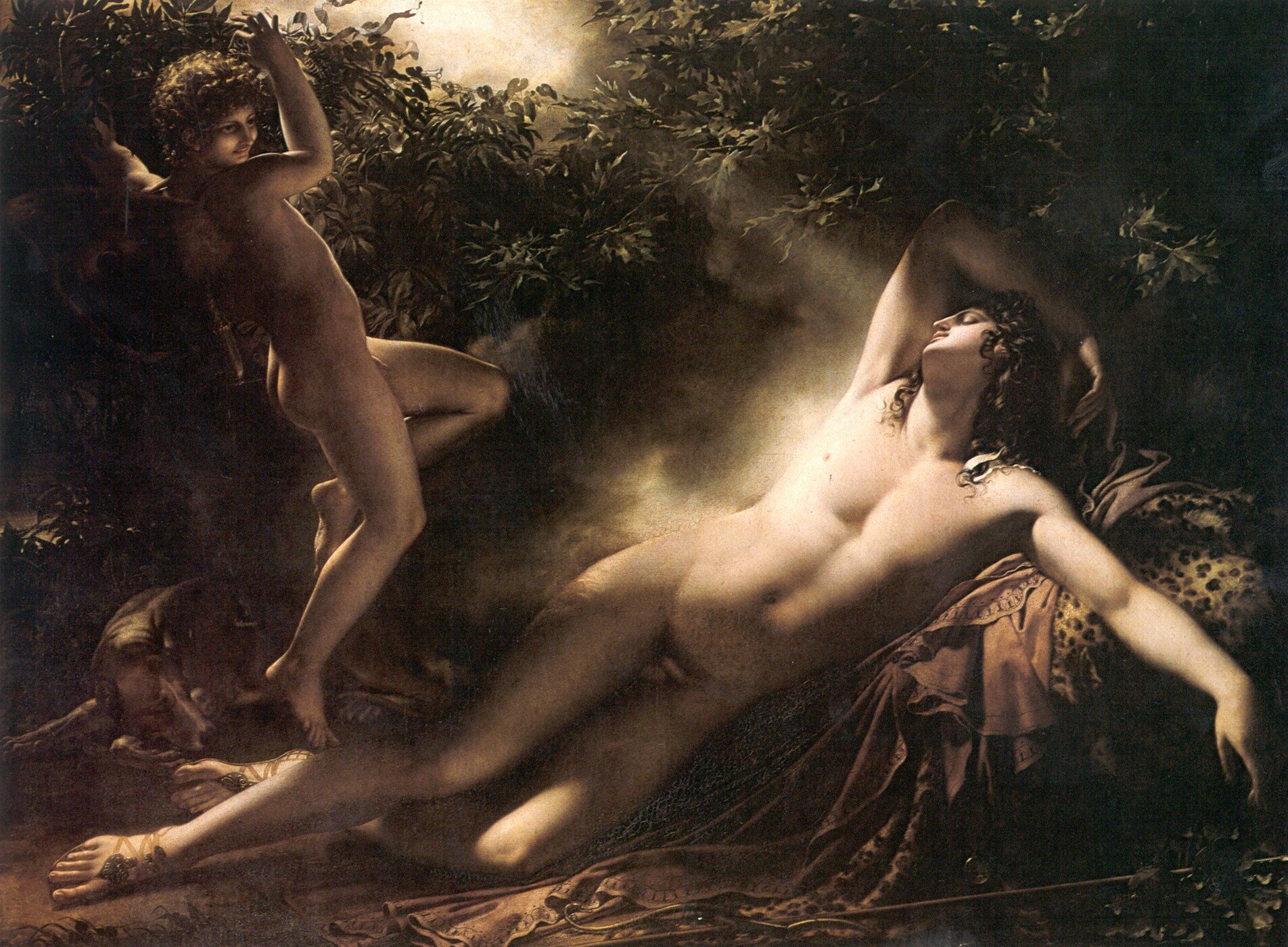Loving Love
Anne-Louis Girodet de Roussy-Trioson, Le Sommeil d'Endymion or Effet de lune, 1791. Oil on canvas, 198 x 261 cm. Musée du Louvre, Paris. Public domain
Inserting oneself in society is a painful process that involves accepting limitations imposed by reality and adapting wishes to possibilities. An increasing number of people reject this process and live as if they were children, guided by the pleasure principle, as Freud put it. To guide one's life solely by pleasure—or by that which is believed to provide pleasure—is to choose a path of frustration, denial, refusal, and hatred.
No feeling is sadder or more destructive than hatred. It emanates from personal choices and contaminates entire groups, eroding individuals and emptying their relationships until they are completely isolated. No wonder, in environments filled with hatred, nothing grows beyond hatred itself, which spreads to the limits of self-destruction.
Historical moments when hatred prevails are exactly those in which constructive rationality is rejected and cultural expressions established on the opposite feeling, love, crumble.
Resistance to hatred occurs through different, interrelated actions: questioning and loving. As Plato noted in a dialogue entitled Cratylus, these actions are essential to the philosophical practice, which consists in loving wisdom. In Greek, the verb erotan means to ask questions; the noun eros, amor; the expression ta erotika, the art of loving.
My whole life has been permeated by art. I started visiting museums at the age of five, I had contact with great artists through the books I got from my mother, I used to play musical instruments, I used to sing, I still dance. However, I chose the philosophical path of aesthetics in order to reflect upon the contribution of art to civilization.
If philosophy is the love of knowledge, art is the love of the human spirit. As art is a form of representation, it helps to understand reality in its fantastic diversity. To open up to art is to open up to the world and to others, to allow yourself to love.
The more intolerant the environment, the more love it takes to survive in it. Love that manifests itself in art is essential to face small everyday frustrations. In times of isolation, what would be of us without movies, music, literature? However, for great frustrations—like those generated by the refusal to grow—the solution is to train your senses and sensitivity. Art helps a lot. Happy are those who lets themselves be moved by art.

